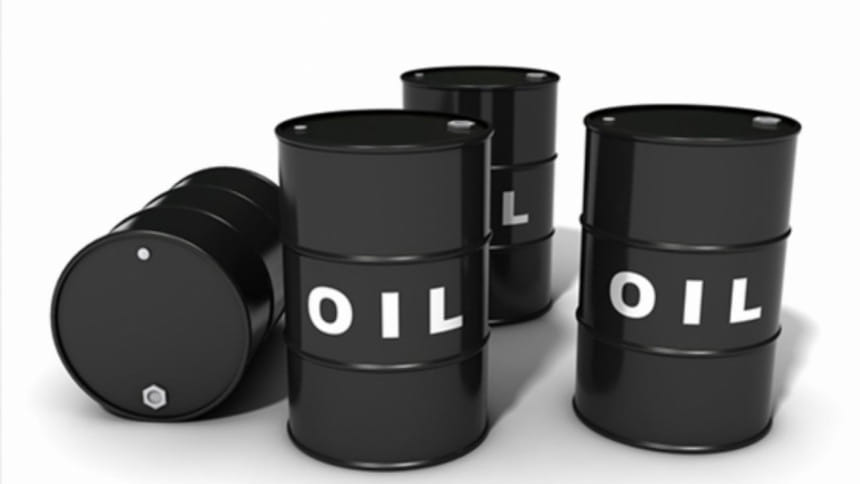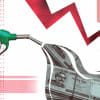BPC for new oil pricing formula

Bangladesh Petroleum Corporation has put forward a proposal to the energy ministry to introduce an automated pricing formula to adjust petroleum prices against international prices on a monthly basis.
If the formula is introduced, prices of diesel, kerosene, and furnace oil will go up in the country.
State Minister for Energy, Power and Mineral Resources Nasrul Hamid said the BPC early this month also made some suggestions on the price adjustment mechanism.
“The BPC has been incurring huge losses as the petroleum prices increased in the international market recently,” he told The Daily Star on Sunday.
The price gap, especially for diesel, between the local and international markets has widened, he added.
The state minister said his ministry would discuss the BPC's proposal and make a decision after consulting Prime Minister Sheikh Hasina about the issue.
The price hike proposal comes at a time when the parliamentary election is just a few months away. Officials at the finance and energy ministries said there was a little chance that the government would hike the prices ahead of the polls.
International petroleum prices dropped drastically in 2014 and remained almost steady for the next three years.
The World Bank, the finance ministry and many local economists had recommended introducing the automated pricing formula, but the government did not accept the recommendation.
The government slightly cut the prices in April 2016 and was supposed to slash it further, but that did not happen anymore.
The international price of crude oil was below $50 a barrel before the price started going up in November last year. Currently the price hovers between $60-$70 a barrel.
According to BPC officials, the state-run company has been counting losses of Tk 3.90 per litre in sale of diesel, Tk 11.50 in kerosene and Tk 9.95 in furnace oil. Diesel and kerosene now sell at Tk 65 per litre and furnace oil at Tk 42 a litre.
Since the beginning of this year, the BPC has been incurring a loss of around Tk 10 crore a day. The loss amount got bigger as taka fell against the US dollar.
Officials said India follows an automated formula for fixing the petroleum prices. This month, diesel is being sold at Rs 65 per litre in Kolkata. The Indian Oil Corporation website yesterday showed that diesel was sold at Rs 65.10 per litre.
The price is Tk 24 higher than that of Bangladesh's. The BPC has written to all deputy commissioners in bordering districts to make sure that diesel was not smuggled into India.
The BPC in its proposal said the corporation should be empowered to adjust the prices every month as it would require more time to take approval from the government.
According to BPC statistics, the corporation started making profits since October 2014. It made a profit of over Tk 10,000 crore till December last year. During this period, international crude oil price hovered between $30-$40 per barrel.
In April 2016, the government cut the prices of octane and petrol by Tk 10 a litre and diesel and kerosene by Tk 3 per litre. Besides, the price of furnace oil, mostly used by industries and power plants, was slashed by over 30 percent.
The World Bank and the International Monetary Fund at that time suggested that the government should deregulate domestic oil prices and introduce a system that makes automatic adjustments of oil prices in line with global market rates.
They said as the price in the international market was low, it was the best time for introducing the automatic price adjustment system. The finance ministry also sent a proposal outlining the economic benefits of the price cut.
However, the BPC did not accept the proposal saying that it needed to adjust its huge previous losses.
Asked why the automatic price adjustment system was not introduced when the petroleum prices were low, State Minister Nasrul Hamid said the BPC did not make such a proposal at that time.
He also claimed that the BPC could not have adopted the system at that time as it had a manual management system in place. “But now it can be done in phases. Prices can be adjusted in every one, two or three months.”
In the last fiscal year (2017-18), the BPC had imported around 59 lakh tonnes of petroleum products. Of them, 64 percent is diesel, 17 percent furnace oil and five percent kerosene. The rest are octane, petrol and other products.
Of the imported diesel, 54 percent is used in the transport sector, 26 percent in irrigation, 14 percent in power, six percent in industry and the rest in other sectors.
The corporation estimates that it will import 64 lakh tonnes of petroleum products this fiscal year.

 For all latest news, follow The Daily Star's Google News channel.
For all latest news, follow The Daily Star's Google News channel. 








Comments